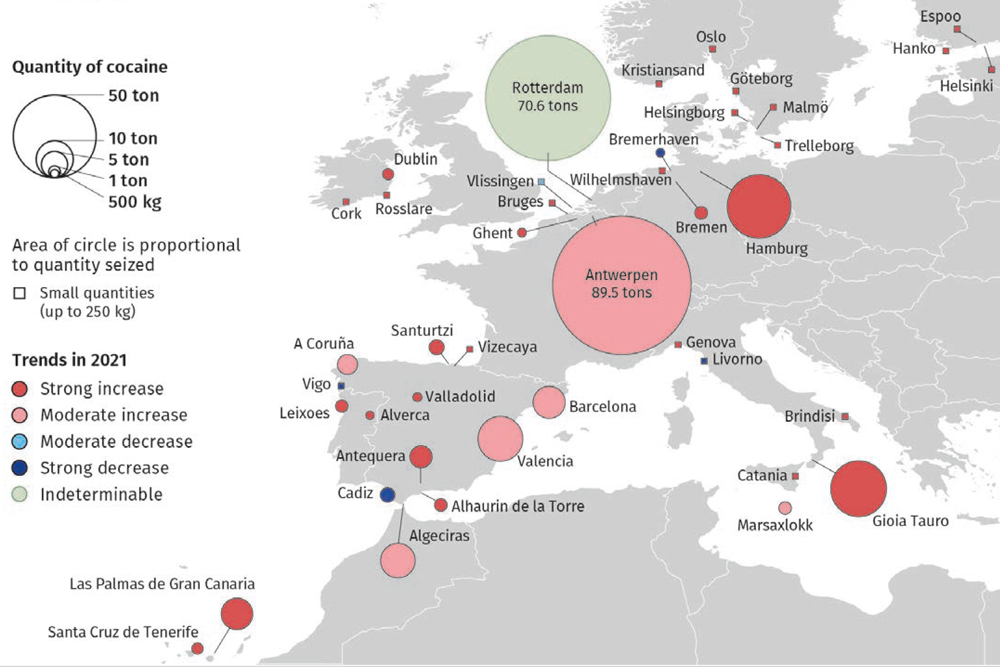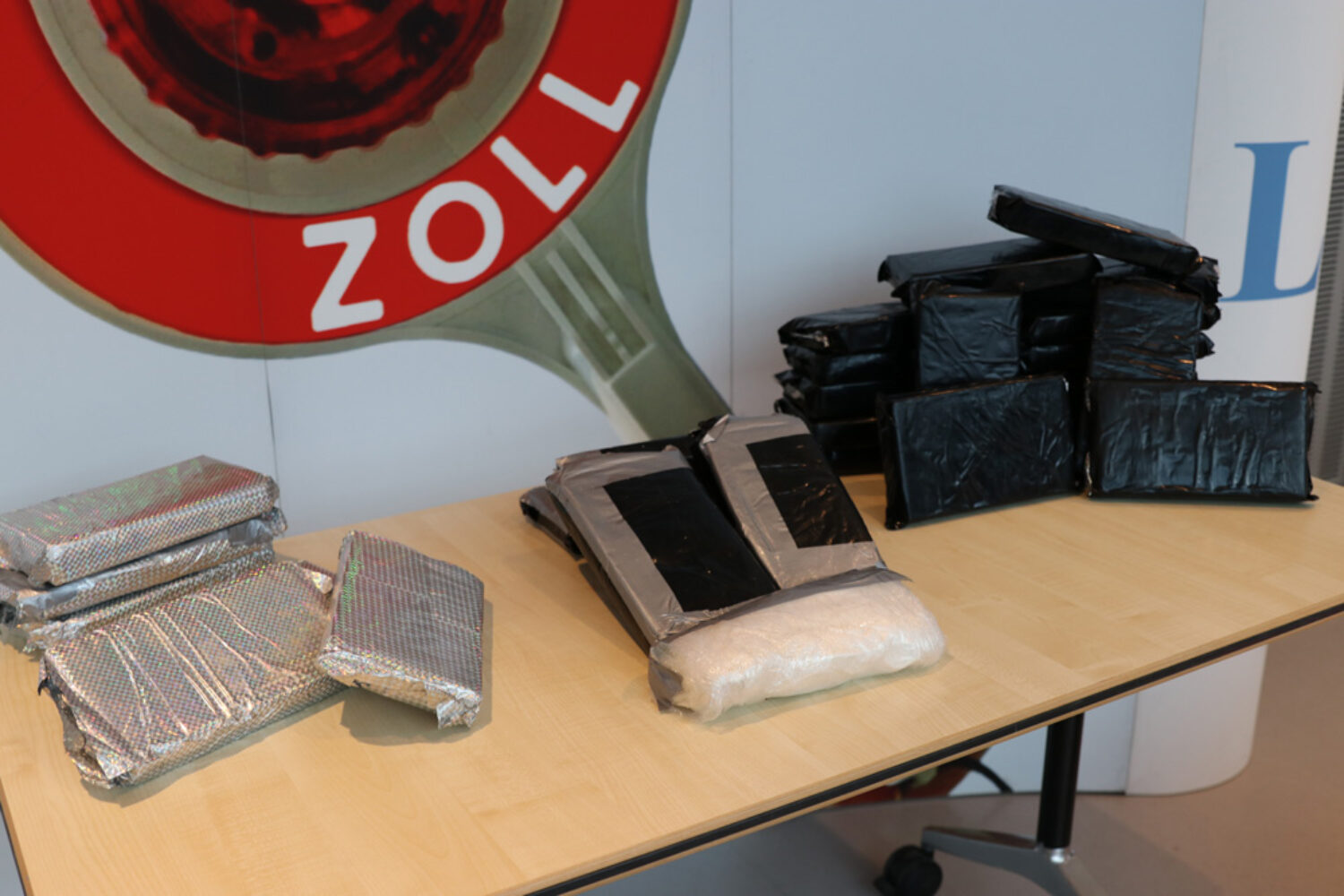The “Safe Harbour Alliance,” initiated last year, aims to curb drug smuggling through ports that are often infiltrated by criminals. The measures also include an awareness campaign for port workers.
The background to the alliance, which was launched in Hamburg in October 2023, is the fight against drug smuggling via northern European ports.
Politicians and security authorities want to “jointly and resolutely” counter the dangers posed by internationally organised drug crime at all levels. A central goal is to effectively strengthen the protection of port employees against recruitment attempts and all resulting dangers from criminal organisations.
A number of measures have now been drawn up and agreed between the port locations of Rotterdam, Antwerp and Hamburg. They are to be presented next week, as was announced today. “Under the leadership of the Federal Criminal Police Office (BKA), the police and customs investigation authorities have stepped up their efforts to address this issue and are pursuing preventive approaches in addition to repressive and operational-tactical measures in the EU-funded INOK project (Infiltration of the North Sea ports by organised crime structures),” it says. In addition to the publication of a corresponding awareness campaign, the establishment of an anonymous whistleblower portal was agreed in particular.
Ports infiltrated for drug smuggling
According to the International Chamber of Shipping, almost 9% of all cocaine, 45% of all cannabis and 30% of all amphetamine-type stimulants are transported by sea. Colombia remains the leading country of origin, but drugs from Bolivia, Brazil and Peru are also increasingly reaching Europe, primarily via the Parana River and the ports in Paraguay.
In addition to bribing personnel in the ports and on the ships, criminals have recently been increasingly using false container reference codes to smuggle the goods out of the country and to the target markets. According to Europol, Antwerp, Rotterdam and Hamburg are among the ports most infiltrated by criminals worldwide.
Hamburg’s politicians attach great importance to the issue – not least in view of the large quantities of drugs that repeatedly enter the country via Germany’s largest seaport. Mayor Peter Tschentscher, Interior Senator Andy Grote, Police Commissioner Falk Schnabel, LKA Chief Jan Hieber and Ulfert Cornelius, new President of the Port of Hamburg Business Association (UVHH), have announced their attendance at the presentation of the measures.
Commenting on the agreements between Hamburg, Rotterdam and Antwerp in the fight against drug smuggling, FDP state chairwoman Sonja Jacobsen said today: “The cooperation with the other port cities gives cause for hope. So far, the Senate has not been able to get a grip on drug smuggling at the port. Unfortunately, this is not surprising, as port policy has been off the Senate’s radar for years.” Hamburg is one of the hubs of international drug smuggling.














